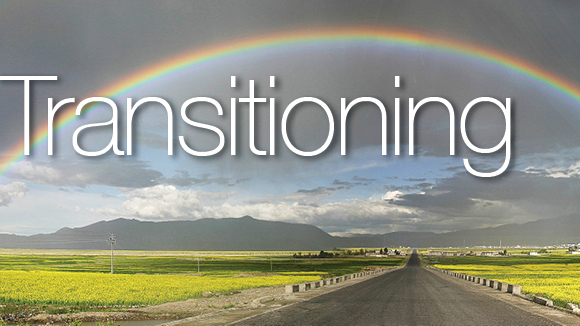by Paddy Rasmussen, Organizational & Re-Creation Specialist,
Interior Designer, Allied ASID
The rebirth of spring always follows the death of autumn and the stillness of winter. Beyond mere coping or finding a sense of peace, the transition of a loved one can bring about opportunities for emotional and psychological healing and divine growth. Overcome your fear and grief by having courage to act and transform your life. Peak experiences may mark a time of spiritual emergence and self-realization. By surrendering to the process, you can awaken spiritually, reborn into a greater definition of yourself and open a new meaningful chapter to your life.
These practices take many forms from formal meditation or prayer to a mindful approach to gardening or walking in nature. Transformative practices include intention, attention, repetition, guidance and acceptance.
Intention:
First, we can bring our intention to learning and growing from our pain or loss. Open yourself to the pain, allow yourself intentional moments to transcend your mind & body with meditation or prayer to experience an inner sense of peace, joy and well-being of where you are right now.
When we take the time to cultivate greater awareness, we can align our intention to guide us to our highest potential.
Attention:
We may stay connected to our loved ones in our hearts and minds. Beyond merely having faith in the afterlife is the experience of surrendering to a loved one’s continued presence in your life in spirit form. The wind rustling the branches of a tree, a butterfly fluttering above your head, or a dream of them comforting you are all signs of the continued connection and communication between your souls. Honor these communications and know your loved one lives on and may have signed up to guide you.
Repetition:
By engaging in transformative practices in a systematic and repetitive fashion, we can build new habits or responses to our own fear and grief.
Certain events or times of the year trigger reminders of someone we miss, especially during anniversary dates of their passing. It’s normal to have moments just don’t dwell in it too long as it won’t help you move forward.
By remembering with gratitude, you are filled again by those very experiences you so cherished. Writing entries in a journal about how the person inspired you and added to your life but more importantly the process will fill your heart with appreciation. Through gratitude new meaning is brought to the relationship. Remember: Nothing they added to you can be taken away with their passing because they left you a gift.
Guidance:
Revise your assumptive world, do more than survive, flourish through your grief awareness. Reinvent yourself! Build a support system with family, friends, church and community to help you move forward and transition. I used my faith and my yoga practice to help me through my grief with its mindful meditative breath work and attention to poses and repetition of them. It was a great healthy de-stressor for me to empty my mind and just to be. I always felt so much better and enlightened after my yoga class
Acceptance:
Acknowledge the reality of the loss.
The gift of acceptance allows us to experience life on its own terms.
“Getting over a painful experience is much like crossing monkey bars. You have to let go at some point in order to move forward.” To let go doesn’t mean you forget or go on with your life as if their passing meant little to you. Letting go means letting go of them to embrace yourself and the life you envision for the future. If the life of the person who departed was truly meant to bond others more deeply by a common thread, then reaching out and coming together not only fosters strength and support, but also honors the life of the one who brought you together.
People engage in different practices to honor their lost loved ones. Such practices are used to help transform grief into an honoring of life. In this process, grief becomes a tool to help us grow and thrive in the face of death. I honored my husband’s life through creating stability for my children by sustaining them in their lifestyle and their home until my youngest daughter graduated from high school. Two weeks after his passing, I returned to school to finish my college education and graduated with honors. On the day of his passing, I honor his life by celebrating him on that day.
Books and songs, websites of poetry, forums for the bereaved, and organizations founded in memorial to someone are all examples of the meaningful ways people put their creative impulse to good use. To cope after the death of someone suggests merely surviving but to create something lasting is to renew your life and contribute something meaningful and beautiful in memorial.
I have learned to transform my own grief into a gift that has served to help my life and my work through the transition of others and their space.
Learn and grow from your pain and loss. There is no set formula for moving through the grieving process with grace, however these divine keys may be just the ones you need to help ease your grieving heart and transform a difficult time into an internally meaningful experience.
Live deeply and fully engage in life again.
(909) 559-5200
paddy@helpingpeoplemoveforward.com

